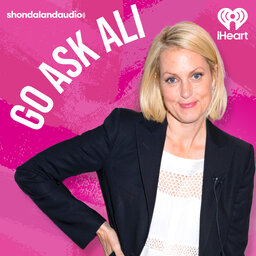If you’re like Ali, you may be curious why all the buzz around Bitcoin. It kinda seems crazy, right, a rogue monetary system completely made up by some guy? But it hasn’t fizzled away. In fact, cryptocurrency seems to be only gaining validation and steam. So perhaps it’s time to understand it, even just a little bit. Crypto billionaire Mike Novogratz, a pioneer of the industry, presents Crypto 101. He explains what it is, why it got a bad name in the early days, how it works now and how it will most likely work in the future…and speaking of future…Mike says it’s called the Metaverse. Fasten your seatbelts! //
If you have questions or guest suggestions, Ali would love to hear from you. Call or text her at (323) 364-6356. Or email go-ask-ali-podcast-at-gmail.com. (No dashes) //
Links of Interest:
Losing Millions Due to Password Loss:
https://www.nytimes.com/2021/01/12/technology/bitcoin-passwords-wallets-fortunes.html
Irene Dao:
https://cointelegraph.com/news/irenedao-nfts-causing-a-stir-on-crypto-twitter
5 Things to Know About 3-D NFTs:
https://smartmfg.io/5-things-to-know-about-3d-nfts/
The Constitution Dao:
Learn more about your ad-choices at https://www.iheartpodcastnetwork.com
In 1 playlist(s)
Go Ask Ali
Ali Wentworth has become a comedic authority on dissecting the shit show that is modern life. In sea…Social links
Follow podcast
Recent clips

The Rise of The Wise w/ Martha Beck & Mariska Hargitay (Season 3 Finale)
55:31

There’s No Shame in Menopause w/ Naomi Watts & Pat Duckworth
59:09

The Primal Joys of Nature w/ The Ebony Anglers and Melissa Clark
55:41
 Go Ask Ali
Go Ask Ali